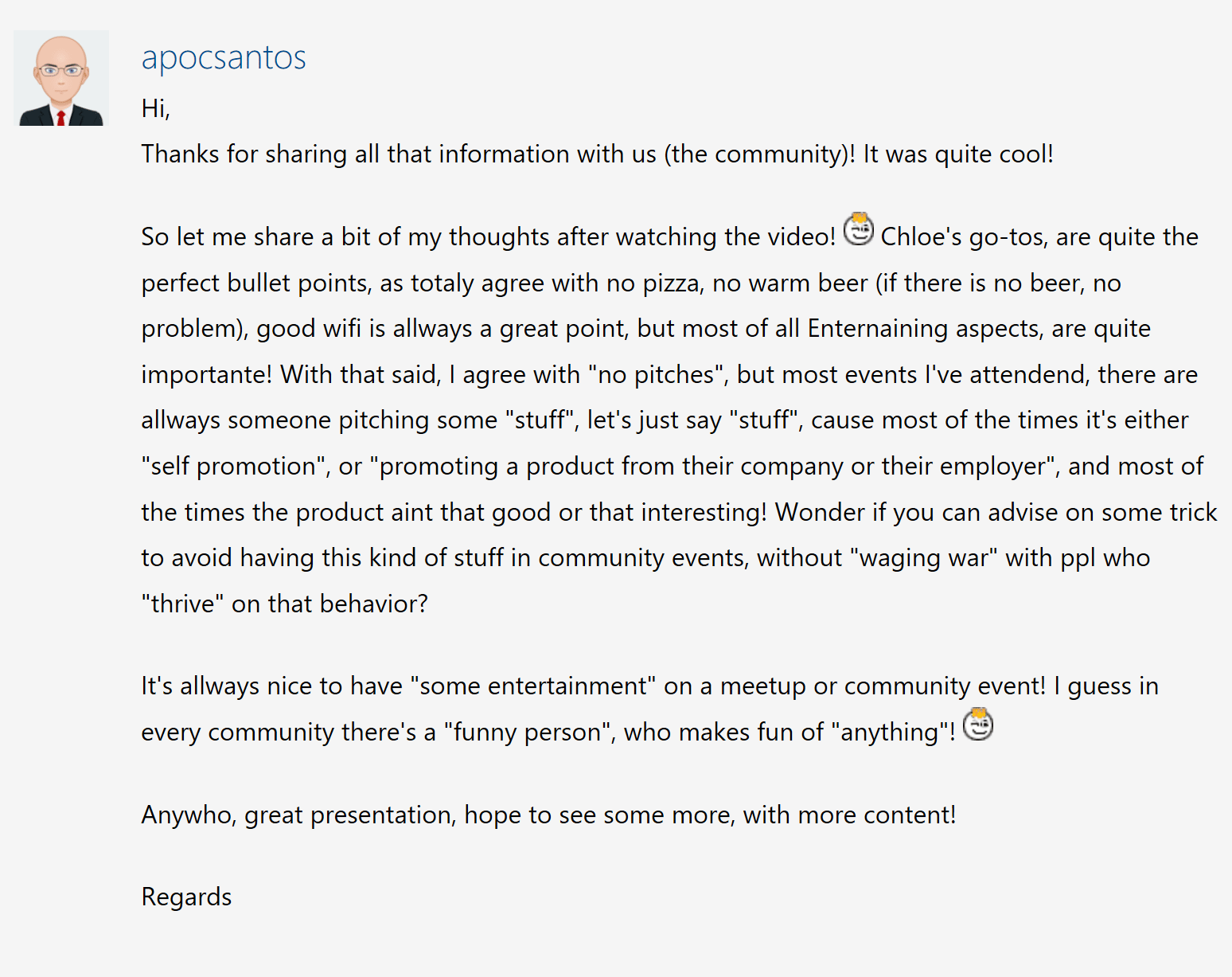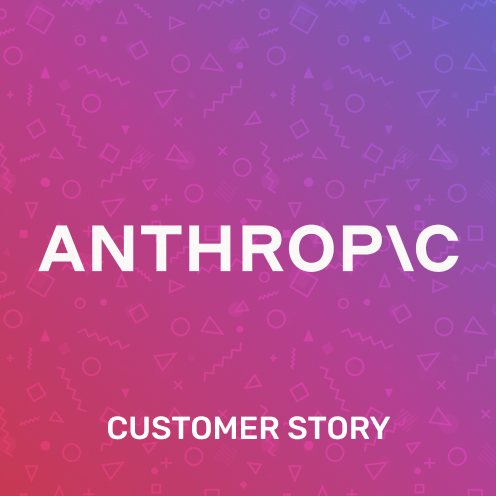Don’t Be “Pitchy” with Your Developer Meetup Pitches

In her recent guest-post on the Microsoft + Open Source Blog, Sentry's Developer Evangelist(a) Chloe Condon sets the stage for the perfect pitchless meet-up. Read the post below, and then RSVP for our next Sentry Scouts meet-up (or watch a past meet-up) to see Chloe's script come to life.
What comes to mind when you hear the word “meet-up?” Personally, I think of s’mores, tie-dying, PowerPoint karaoke, and giant squirrel costumes. Of course, here at Sentry, we don’t think of our meet-ups as “meet-ups,” we think of them more as events where you happen to learn something (while eating a fruit-roll up and perhaps a marshmallow or two…).
I recently spoke about Sentry Scouts, and our approach with community events on Microsoft’s Open Source Show. One of the tips I included in this episode (in addition to “no pizza” and “no warm beer”) was “no pitches.”
In my experience, pitches in talks or presentations at meet-ups can feel awkward and forced. I would immediately feel disconnected and disinterested in the content being presented when a presenter would abruptly go from talking through the code, design process, and engineering decisions to a sales-y demo of a product that felt oddly like an infomercial. Additionally, as a person who often gives presentations, I’ve always found myself looking for ways to make any company-related demos as relevant and useful as possible (vs. adding it in for the sake of promotion) and include other tools and integrations as well. In short, I didn’t want to sound like the Shamwow guy.
User “apocsantos” asked a great question about pitching after the recent Open Source Show on meetups, that caused me to give some additional thought on the matter:
And thus, this blog post was born! So, some quick context: before switching over to engineering, I spent a large part of my life as a musical theatre actress (you can read more about that here). Obviously due to my background, giving and watching presentations is likely something I analyze a bit more than the average engineer. In answering apocsantos’ question, I discovered a couple of analogies between pitches and musical theatre that I’d love to share.
PassaggioPassaggio
Oh, what? You don’t know what a passagio is? That’s okay — I’m willing to bet that it’s the first time it’s ever being mentioned in a blog relating to technology. Passaggio (Italian) is a term used in classical singing to describe the transition area between the vocal registers. For those of us who’ve done karaoke, it’s that point in the song where we quickly realized we can’t quite reach the notes in the key-change for Bon Jovi’s “Livin on a Prayer.” Still confused? Here’s a deep dive YouTube video on it. TLDR, as vocalists, we have vocal registers - head voice (high notes), mixed voice (middle notes), and chest voice (low notes). A trained singer with good technique will transition from each register seamlessly, while an untrained vocalist (example: some dude singing “Bohemian Rhapsody” at karaoke) may sound a bit strained going from the low and high notes.
There’s definitely a time and a place for “pitching” or demoing a product. Ultimately, every single talk/piece of content/company organized meet-up has an end goal of promoting something - the key is to make that transition (or passagio) seamless and not stick out like a sore thumb. In my opinion, the best talks address a problem, walk through the solution, and show the tools used to fix it. When we attend events, we are there to learn something - not be sold on something. There is so much value in explaining a real-world technology problem, and then showing the tools used to resolve it vs. watching someone talk through a pitch-deck. Which brings me to my next musical comparison…
Being “pitchy”Being “pitchy”
One of my biggest pet peeves in musical theatre is when songs exist only to… well… be a song. In my humble theatre nerd opinion, good musicals (for example Sweeney Todd, Hamilton, Dear Evan Hanson) only require the actors to sing when the song moves the plot forward/helps with character development. Not so good musicals require the actor to “park and bark” for 3 minutes for the sake of… well… adding a song. Jukebox musicals (musicals such as “All Shook Up,” “Mamma Mia,” or “Anything Goes”) exist as showcases of particular artists — forcing us into weird plots and song breaks that exist for no reason (example: the song “Blue Suede Shoes” in “All Shook Up” exists to illustrate the character is wearing shoes… clearly this was not written for the show, and was included because it’s a popular Elvis song in an Elvis musical). Much like songs in musicals, pitches in talks should only exist to illustrate a point… not because you work for XYZ company, and your manager wants you to walk through the XYZ UI.
In the musical world, being “pitchy” refers to when a singer sings notes that are Flat (slightly lower in pitch) or Sharp (slightly higher in pitch). Typically those eliminated on the 1st round of American Idol are “pitchy,” as well as Mariah Carey’s infamous Christmas performance. The irony here being that we also don’t want to sound “pitchy” when giving talks and presentations as engineers. There is a huge difference between talking about CI/CD, and then diving into a demo of an entire product vs. addressing an issue, and then showcasing the features in your product relevant to the topic. The more you can use your passagio to make this transition seamless, the better your talk will be.
In conclusion, you can still “pitch” in a talk without being “pitchy.” Don’t feel like you need to eliminate all demos or walk-throughs of your product from your presentation — just make sure that when you include them that you don’t find yourself sporting a resting-pitch-face (sorry, couldn’t resist). Make sure that the content is relevant to your talk, help moves “the plot” forward, and doesn’t have an abrupt transition. If your product demo feels like a random ABBA song thrown into your presentation for the sake of just being there… it may be time to rethink the way you write your talk.
Learn more about Sentry’s approach to “[no] pitch perfect” meetups here.




